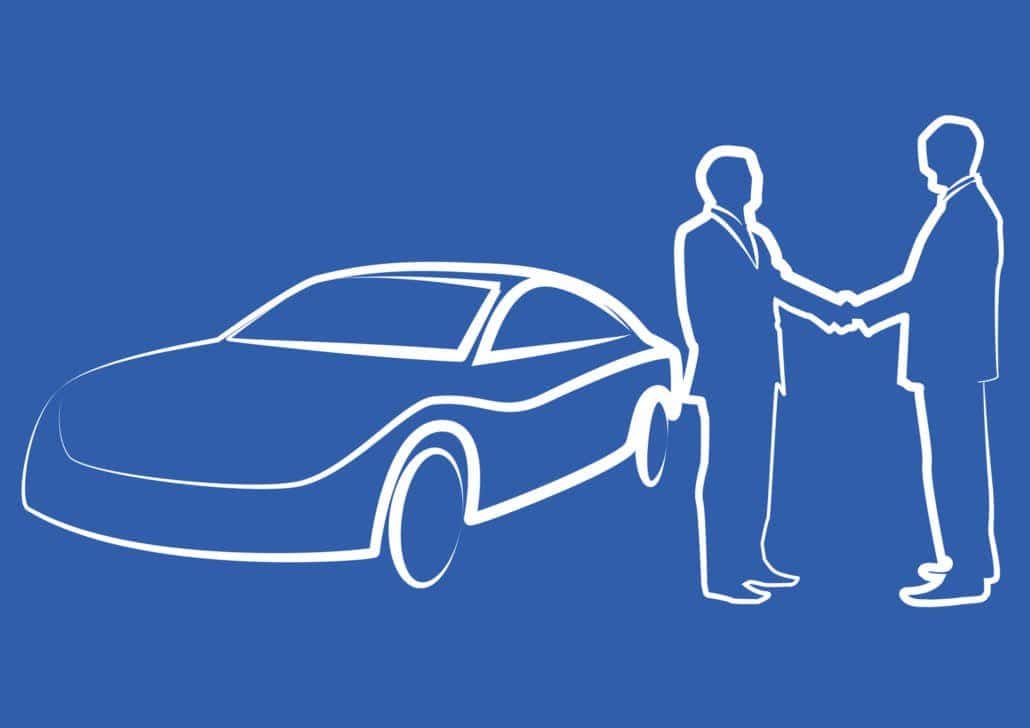Are you buying a car from a private owner?
Our article will make you aware of all sorts of advantages and disadvantages associated with car buying from a private owner over a dealer.
- Advantages of Buying a Car from a Private Seller
- Disadvantages of Buying a Car from a Private Seller
- Safety Precautions
- Legal Precautions
- Pre-Purchasing Steps
- Questions for the seller
Used Car Buying Checklist:
Advantages of Buying a Car from a Private Seller
The biggest advantage of purchasing a car from a private seller is “Low price”. Private-sellers are usually eager to sell their used car, looking at the general trend, private-sellers sell their vehicle at a lower price compared to dealers, as they don’t charge any dealer fee, documentation fee, or any other related fees.
Looking at other advantages, a private seller won’t try to sell you a car with extra warranties. There is a good scope of negotiation with a private seller. On the other hand, it might be difficult to negotiate with a professional dealer who is selling hundreds or thousands of cars on a monthly basis. You save lots of time when buying from private sellers since they are not professionals and they want to get rid of the car as soon as possible. In most of the cases, a ready buyer who is willing to pay immediately will probably get a deal.
Disadvantages of Buying a Car from a Private Seller
A private seller can’t offer you the warranties. You can only rely on the existing warranties if the car is relatively new and has low mileage.
Majority of private vehicles are sold for upfront cash. In rare cases, people with strong credit and a good relationship with the bank or credit union may get prequalified for a vehicle loan.
In certain states, it is mandatory for a dealer to let the buyer decide within a few days if they want to purchase or cancel the deal. Whereas, with a private seller, once you sign the title and hand over the money, you are committed with no scope of looking back.
Check & Decode Any VIN Instantly
Get your VIN check and find hidden problems with any car! Comprehensive vehicle and accident history, service and repair information, specifications, theft status and more

Private sellers are not covered under lemon law protections. Although each state has different requirements, the basic idea is the same: If a dealership sells you a defective car which can’t be fixed easily, it’s required to offer you a replacement or refund of your entire payment. Remember, not every state extends lemon laws to include used cars. Also, there is no scope for posting negative reviews on social media to show your dissatisfaction, if purchased from a private seller. Most dealers are very sensitive to user reviews. They try to do everything possible to make you happy for that one positive review. In a majority of the cases, private sellers sell the car “as is”.
If you are buying a car from a private seller, you are taking on all of the risks of repairs along with the car. If in case you find any problem immediately after the purchase, you’ll have to pay for the repair.
That’s why it is advisable to do the mechanical inspection, once the car is selected. Also, checking the VIN and analyzing your vehicle history report protects you from any immediate repair expenses, since you would get information about the service history of the car.
Safety Precautions
Keep safety precautions in mind. Deals made with private sellers usually involve one on one interaction, where a stranger is selling the personal car. Whereas, when purchasing with a dealer, you walk into their office and make a final deal within office hours.
In case of dealing with a private seller, you might need to visit their home for the final deal. In such an instance, you can take precautions like meeting the person in a public place and during the daytime. You can check out the car once again, before completing the final transaction.
Legal Precautions
Dealers have a registered business and they carefully guide you on applicable protocols, laws or documentation related to any purchase related requirements. They handle all of the paperwork when buying a used car from them. But, with a private seller, it is up to your and the seller you are working with to get all of the work related to car registration, financial, and transfer of ownership squared away. The private owner will not give you any guarantees or warranties. So, it is smart to follow these steps before finalizing a deal with the seller.
- Pre-purchase steps
- Ask the customer regarding these issues/Questions to ask the seller/Questions to throw at the seller – Ask with doesn’t sound good)
- Follow used car checklist
Pre-Purchasing Steps
Before buying a used car, you should always purchase a detailed vehicle history report. VehicleCheckUSA offers a VHR that discloses a vehicle’s past. It could tell you things such as whether or not that car has been in accidents, flood damage, has correct odometer reading, or has some major title brands like a salvage, lemon vehicle, along with many other helpful details.
Another task you should complete before finalizing the purchase of a used car from a private-seller is to get the car checked by a mechanic you trust.
A Mechanic will help in identifying any pre-existing problems. Remember, always get the mechanical inspection done before signing a pre-purchase contract.
Questions for the seller
Do your homework before visiting the seller. Make sure you have a good knowledge about the car you are going for a purchase. Always ask following questions to the seller-
Why are they selling the car?
Ask them what condition they would say the car is in and what problems they may have experienced?
Ask for past maintenance records, it will help you get an even better feel for the car’s history.
This information will help both parties come to a fair price.
As we all say “The more you know the better”
After purchasing VehicleCheckUSA’s History report, follow the given checklist of the questions to ask the owner of the vehicle to get as much information as you can.
Follow these questions one by one.
Used Car Buying Checklist
- Why are you selling the car?
- How many miles are on the odometer?
- Are you the original owner? If not, who was the car bought from?
- Can I take it to get an inspection by my mechanic?
- Are there any quirky tendencies the car has?
- What kind of oil do you use in the car?
- Are there any special features?
- How would you describe the condition of the vehicle?
- Do you have any past service record receipts?
- Can I take it for a test drive on a highway/open road/city street?

————————————————————————————————————————————————————————————————————————————–
Every used car has a back-end story and some of them are nothing short of a nightmare. So, always look for the Vehicle History Report before purchasing a used car. It will help you know if a car has a clean history or hidden problems. We have data available for every used car sold post-1982.
